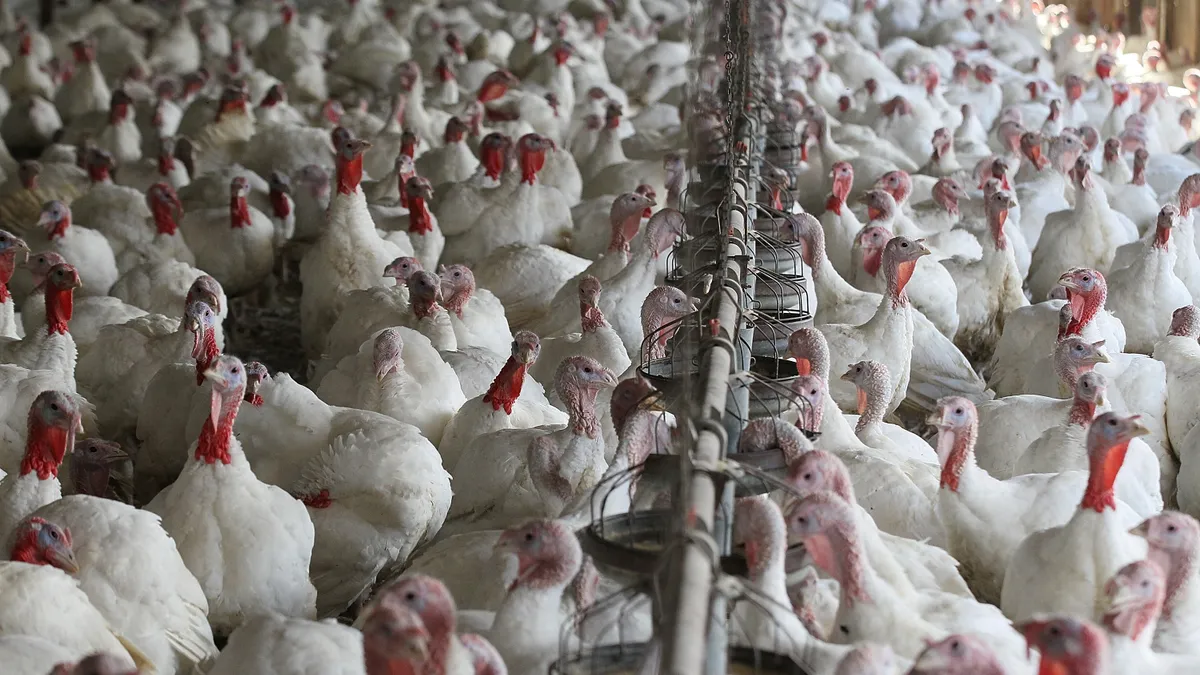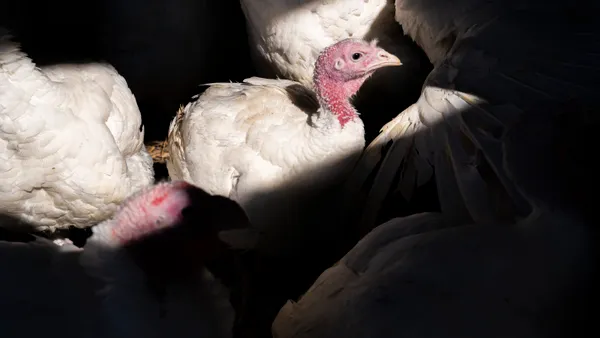Dive Brief:
- A controversial ballot measure that would make concentrated animal feeding operations illegal in Sonoma County, California has farmers pushing back on the issue.
- Animal rights activists see the proposal as a way to reduce the animal welfare and environmental risks that come with CAFOs, others say the regulation would hurt farmers, cost taxpayers and eliminate jobs if passed.
- The new ballot measure has echoes of Proposition 12, which established animal housing rules for egg and pork producers, and began as a citizen-led initiative before becoming state law earlier this year. Measure J will appear on Sonoma County ballots in the general election Nov. 5.
Dive Insight:
Mike Weber, owner of Sunrise Farms in Petaluma, California, said at a town hall debate last month that the bill has the potential to wipe out both big and small farms in the area. Weber’s farm is considered a CAFO by EPA standards.
“It starts with the large farms,” he said. Losing them would trigger a domino effect on other agriculture businesses, such as creameries and feed mills, making it harder for any surviving farms to operate, Weber said.
The Organic Farmers Association, which is generally opposed to factory farming, also took issue with Sonoma County’s ballot initiative.
“This measure is so broadly written that it would include small to medium pasture-based and certified organic farmers,” the association said. “These farmers…would become collateral damage, outweighing whatever benefit it might generate.”
The Coalition to End Factory Farming, supported by animal rights and environmental justice groups, gathered 37,000 signatures to get Measure J on the ballot this year. While it has clear support, the measure has also stoked backlash, with residents posting massive numbers of signs along roadways, in front yards and on farmland opposing Measure J, AP reported.
If passed, Measure J would phase-out existing CAFOs over a three-year span and forbid future ones from development. The U.S. Environmental Protection Agency classifies certain farms as CAFOs to regulate operations that could pose a risk to natural resources.
While Sonoma County has hundreds of small family farms, Kristina Garfinkel, a Santa Rosa resident and lead organizer with the Coalition to End Factory Farming, highlighted 21 large CAFOs that pose significant animal welfare and environmental risks in the area and would be affected by the measure.
“We have to start the change, because our government is failing to protect animals and our very future on this planet,” Garfinkel wrote in an email to Agriculture Dive. Some of Sonoma County’s largest CAFOs each house nearly 1,000 dairy cows or more than 200,000 chickens.
Farmers and agricultural organizations are urging voters to oppose Measure J, calling it “deeply flawed and confusing” with “far-reaching, unintended consequences.”
If all dairy and poultry farms in Sonoma County were to close, that would result in a $381 million loss to the local economy, including significant job and wage losses, according to a worst-case scenario report conducted by the University of California, Davis about Measure J.
Nearly half of California’s organic dairies are located in Sonoma County, which produces about 13% of the nation’s organic milk. The county is also known for its wine-grape growing, in addition to farms that grow vegetables and apples.











